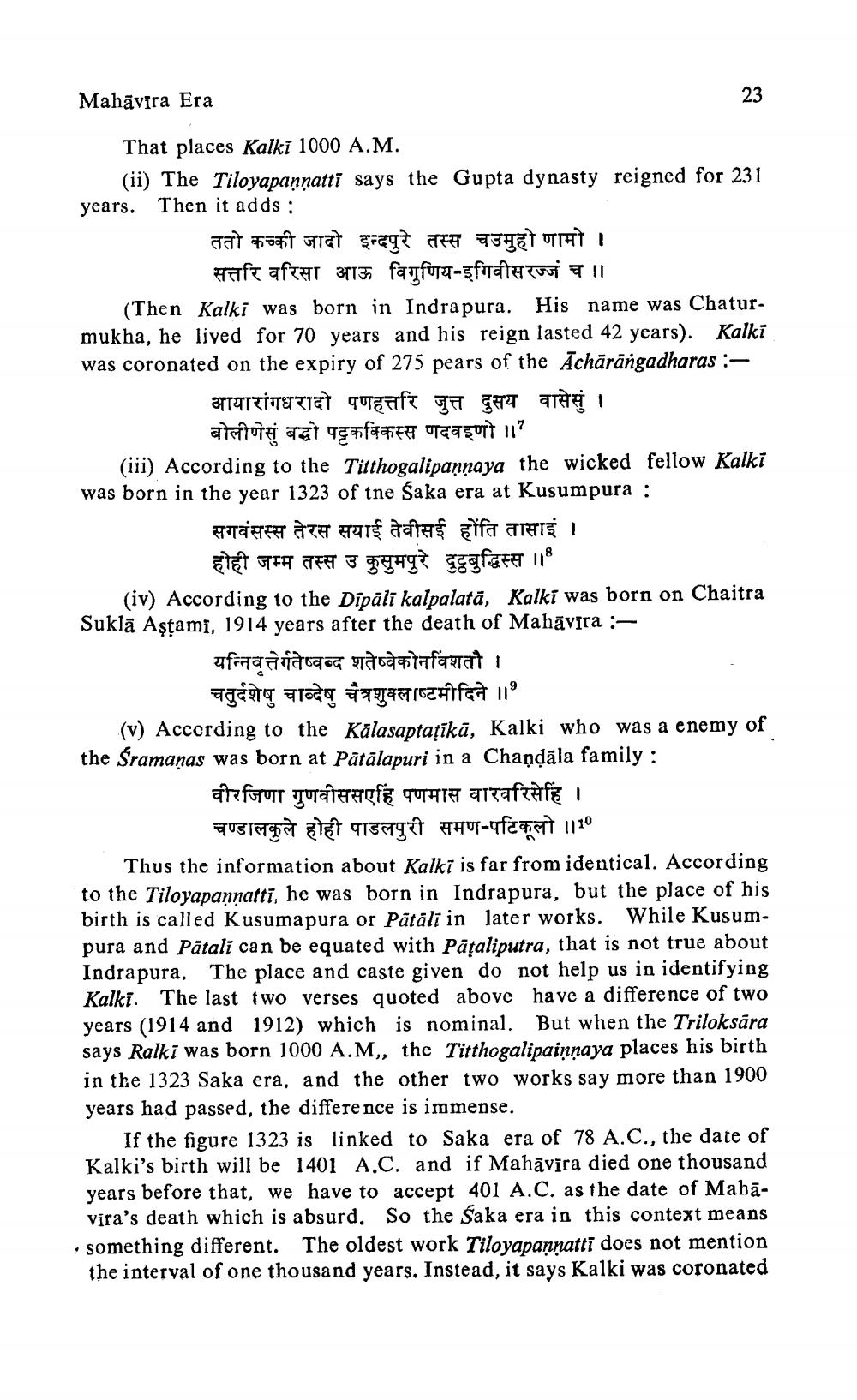________________
Mahavira Era
That places Kalki 1000 A.M.
(ii) The Tiloyapanṇatti says the Gupta dynasty reigned for 231 years. Then it adds:
ततो कच्की जादो इन्दपुरे तस्स चउमुहो णामो । सत्तर वरसा आऊ विगुणिय- इगिवीसरज्जं च ।।
(Then Kalki was born in Indrapura. His name was Chaturmukha, he lived for 70 years and his reign lasted 42 years). Kalki was coronated on the expiry of 275 pears of the Acharängadharas :आयारांगधरादो पणहत्तरि जुत्त दुसय वासेसुं । बोलणे बद्धt पट्टकविकस्स णदवइणो ॥ 7
23
(iii) According to the Titthogalipanṇaya the wicked fellow Kalki was born in the year 1323 of tne Saka era at Kusumpura :
गवंस तेरस सयाई तेवीसई होंति तासाई । होही जम्म तस्स उ कुसुमपुरे दुबुद्धिस्स || S
(iv) According to the Dipālī kalpalatā, Kalki was born on Chaitra Sukla Aṣṭami, 1914 years after the death of Mahāvīra :
यन्निवृत्ते तेष्वब्द शतेष्वेकोनविंशतौ ।
चतुर्दशेषु चाब्देषु चैत्रशुक्लाष्टमीदिने ॥
(v) According to the Kalasaptaṭīkā, Kalki who was a enemy of the Sramaņas was born at Pātālapuri in a Chaṇḍāla family :
atform guåtaagfż qu+ra arzafzùfg | चण्डालकुले होही पाडलपुरी समण-पटिकूलो ॥10
Thus the information about Kalki is far from identical. According to the Tiloyapanṇatti, he was born in Indrapura, but the place of his birth is called Kusumapura or Pātālī in later works. While Kusumpura and Pātali can be equated with Pataliputra, that is not true about Indrapura. The place and caste given do not help us in identifying Kalki. The last two verses quoted above have a difference of two years (1914 and 1912) which is nominal. But when the Triloksära says Ralki was born 1000 A.M,, the Titthogalipainṇaya places his birth in the 1323 Saka era, and the other two works say more than 1900 years had passed, the difference is immense.
If the figure 1323 is linked to Saka era of 78 A.C., the date of Kalki's birth will be 1401 A.C. and if Mahāvīra died one thousand years before that, we have to accept 401 A.C. as the date of Mahavira's death which is absurd. So the Saka era in this context means ⚫ something different. The oldest work Tiloyapaṇnatti does not mention the interval of one thousand years. Instead, it says Kalki was coronated




